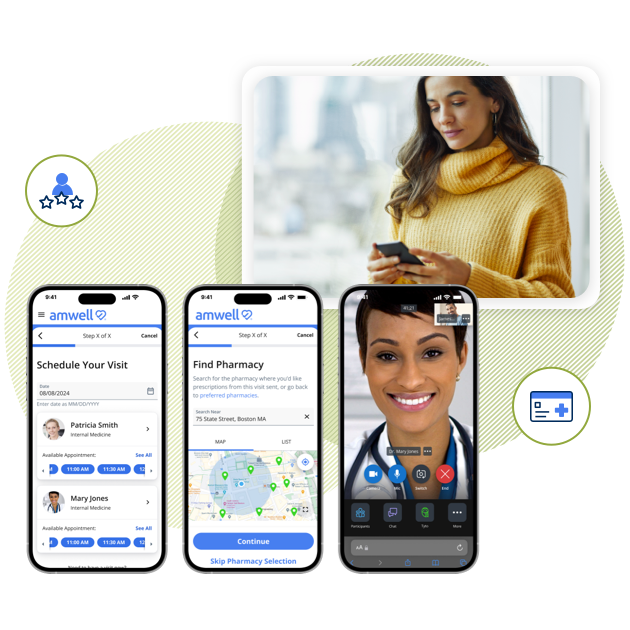Amwell for patients How it works
We’ll show you a list of available doctors, and their experience and ratings, before starting your visit.

Three easy steps
Enroll
Creating an account takes only a few steps and is done in a minute. Your information is then stored securely for all future online visits.
Choose
Choose the doctor that works best for you. We’ll show you a list of available doctors, their experience and ratings, before starting your visit.
Visit
Our web‑based and mobile app visits use secure, high‑quality streaming video. See and speak with a doctor 24 hours a day from home or on the go.

What to expect during your visit
Most doctor visits take about 10 minutes, but you can always add time if you need to. Doctors on Amwell can review your history, answer questions, diagnose, treat, and even prescribe medication. Prescriptions will be sent to your pharmacy of choice.
- Review available doctors
- Choose your pharmacy
- Start your video call

Insurance coverage
More employers and health plans are adding telehealth as a benefit. Enter your insurance information upon enrollment to see if you qualify.

Prescriptions*
During or after a visit, providers can send prescriptions and recommendations for over‑the‑counter (OTC) medications to a pharmacy of your choice.
*Video visits are required for most states to have prescriptions as part of your treatment. For more information call 1‑844‑SEE‑DOCS



